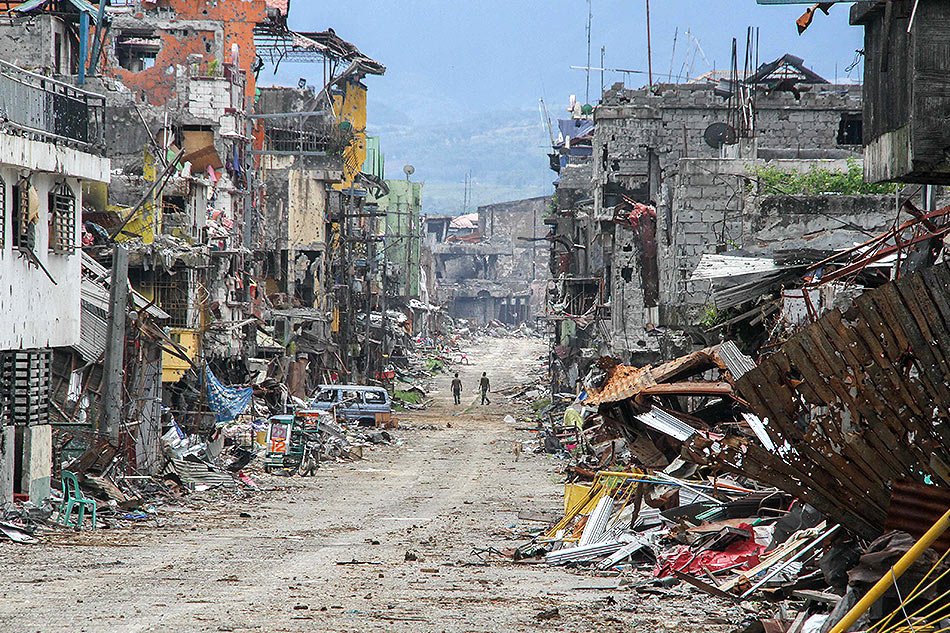
President Rodrigo Duterte earlier announced that the war, which has breached the 4-month mark, will end in September but AFP troops were unable to oust Maute extremists from Marawi and instead asked for more time.
[Video report]
Col. Romeo Brawner, deputy commander of Joint Task Group Ranao, said Tuesday that the siege dragged on due to difficulties in clearing the conflict zone.
"The reason why it is taking a bit longer than we expected is because foremost among our objectives is to ensure the safety of our hostages," he said on ANC's "Beyond Politics".
"While our forces are moving forward, they have to be really cautious so that the hostages will not be caught in the firefight and also so that we’ll be able to clear the IEDs and this will not cause unnecessary casualties on the government side," he added.
[Video report0
For Prof. Julkipli Wadi of the University of the Philippines Institute of Islamic Studies, the combination of forces of the Abu Sayyaf, Maute group, and some foreign fighters made it difficult for the military to quickly end the war.
"I think the Armed Forces of the Philippines has failed to anticipate [this]," he said.
"I guess the new enemy now is really advancing forward that had really been in a sense not given much attention by the AFP," he added.
As to why the extremists have managed to stay in the city for months, Brawner said they believe that the terrorists were able to haul ammunition and weapons by looting abandoned houses and establishments.
Brawner however assured that following the Marawi crisis, the military is now "more equipped" to fight in urban warfare.
"Our tactics have evolved as well and now we believe that we are more equipped to fight urban warfare. And from the experiences we had in Marawi City, we will definitely train for this kind of warfare," he said.
More than 800 people, mostly terror suspects, have been killed in the fighting in Marawi, which also left much of the once urban and cultural center in ruins, with buildings either burned to the ground or damaged in firefights.
It also spawned a humanitarian crisis with more than 400,000 people displaced from Marawi and nearby towns.
http://news.abs-cbn.com/focus/10/03/17/why-has-the-marawi-crisis-dragged-on-for-months

No comments:
Post a Comment
Note: Only a member of this blog may post a comment.